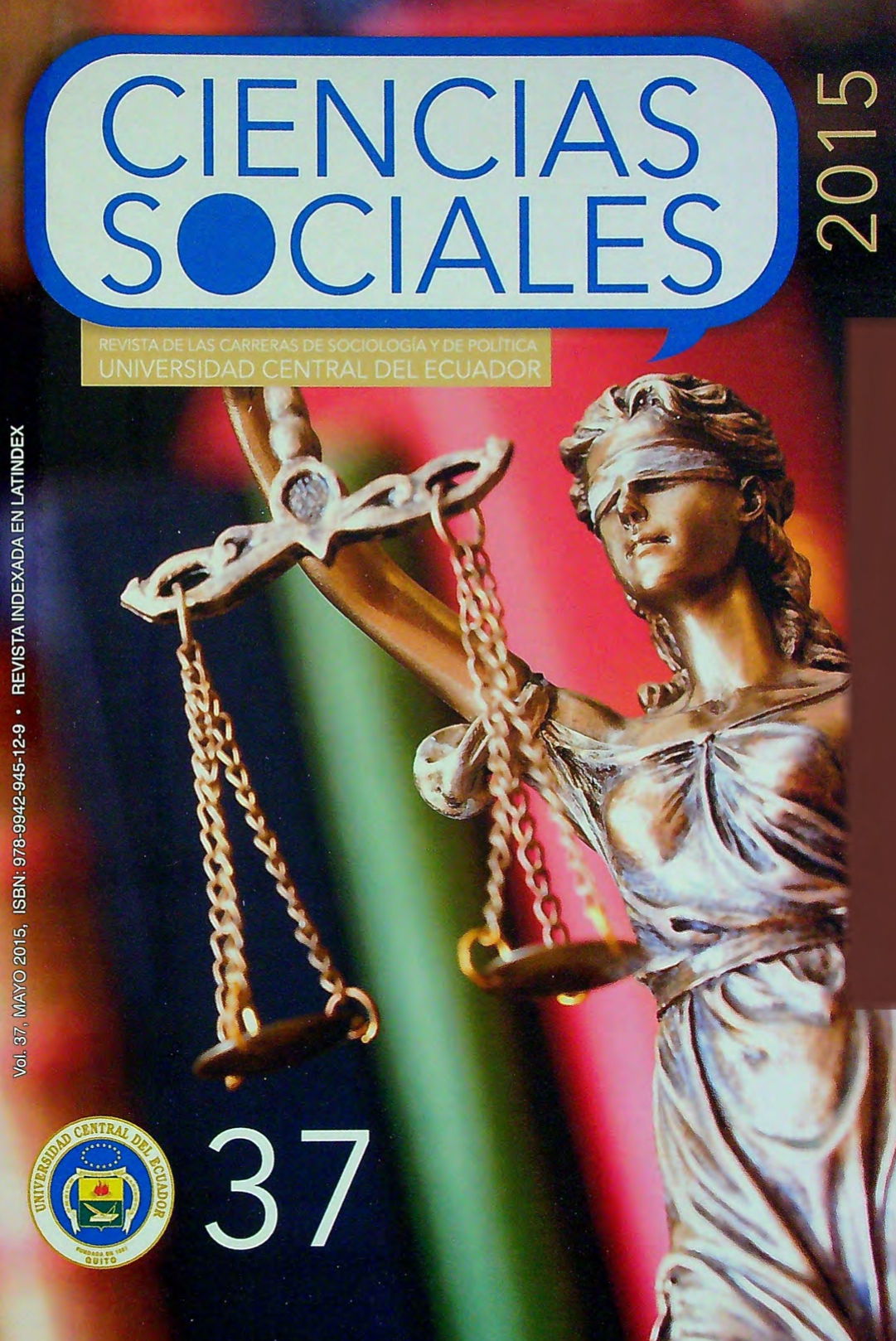Problemas de la tipicidad en la actio libera in causa en su estructura básica
Keywords:
Typical result, guilt, willful default penalty, willful, reckless omission, crime, rule of lawAbstract
When it is exceptíonally stated that a wrong action is committed it must be imputed and for thls we must rely on the (alicactio libera in causa, Expression in Latín). This indicates an action taken by an individual in total use of his mental faculties and in a complete free and accountable condition, but that, for that particular moment the individual is incapable of guill. The modal suggests exception processing attribute or conduct engaged in default state. Toe exception modal undermines the principie of lraud or negligence, in thal fraud is a matter of fact. Criminal law and social status serve as a system of protection of socíety. Criminal law as a social state must be legitimized as an effective social protection system, whích ascribes the mission crime prevention measure, and only in the measure, what is necessary for that protectlon. The social status juslifies the intervention of the state to solve social problems, the (iuss ponendi, Expression in Latín), or !he legal right to punish. In my opinion this violates the principie of formal equafity and material.
The principie of Legality is a fundamental princíple that all exercise of public authority should be subject to the will of law and jurisdiction. The structure of (omissio raleases in agendo, Expression in Latin ) is what causes more trouble to the criminality modal. This model, unlike !he exception, complains or crilicizes the conduct or outcome of the previous beh avior. This particular modal brings legal uncertainty, the option to punish the guarantor not clearly delined by law, creates uncertainty for legal processing. Eventualfy individuals unrelated to any criminal liabíllty have to suffer penalty aclions. Ali this is inappropriate for the rule of law.
Downloads
References
Donna, Edgardo.- Teoría del Delito y de la Pena.• Tomo 1.- 2da edición.- Editorial Astrea, pag. 250
Fernandez Carrasquilla, Juan.- Derecho Penal Parte General. Teoría del delito y de la pena.- Editorial lbañez, Vol 1, pag. 371 y 372.
Mir Puig, Santiago.- Derecho Penal Parte General. 9na edición, Editorial Repertor, pag. 222
González Fernández, Juan José.- Una aproximación a los principios de seguridad Jurídica. A rtículos doctrinales
Mir Puig, Santiago.- Bases Constitucionales del Derecho Penal.· 1ra edición, 2011. Editorial lustel. pg. 19
Kelsen, Hans.- Teoría Pura del derecho.- Introducción a los problemas de la ciencia jurldica. Primera edición
Editorial T rotta. Pg. 25
Mir Puig, Santiago.- Derecho Penal Parte General. 9na edición, Editorial Repertor, pag. 61
Muñoz Conde, Francisco.- Derecho Penal Parte General.- Séptima Edición. Editorial Tiran lo Blanch. pg. 217
Silva Sánches, Jesús.-Aproximación al derecho penal contemporaneo.- Segunda edición. Editorial I B de f, pág. 506
Roxin, Claus. Derecho Penal Parte General. Fundamentos, La estructura del delito. Editorial Cwitas, 2da edición. pag. 850
Cerezo Mir, José. Derecho Penal Parte General. Editorial 18 de f. pg.197
Mercedes Alonso Alama.- La acción libera in causa. ADPCP, Madrid 1989, pag. 55 y ss.
Díaz Pita, María del Mar. Actio libera in causa, culpabilidad y estado de derecho. - Editorial lirant Monografías, pag. 66yss
Mir Puig, Santiago.• Estado y Pena.- Editorial 18 de f 2006. Pg.97
Jackobs, Günther.- Derecho Penal, Parte General.- Segunda Edición. Corregida.- Madrid, Marcial Pons, Ediciones Jurídicas , S. A., 1997.
Downloads
Published
How to Cite
Issue
Section
License

This work is licensed under a Creative Commons Attribution-NonCommercial 4.0 International License.
Política de acceso abierto
La revista Ciencias Sociales adhiere al modelo Acceso Abierto en el que los contenidos de las publicaciones científicas se encuentran disponibles a texto completo libre y gratuito en Internet, sin embargos temporales, y cuyos costos de producción editorial no son transferidos a los/las autores/as.
En ese sentido, no existe costo alguno para los/as autores/as en el envío o durante el proceso editorial, defendiendo el derecho a la información con equidad e iguales oportunidades de acceso.
Licencia y derechos de autor/a
Los autores conservan todos los derechos de publicación del artículo y conceden a la Revista Ciencias Sociales una licencia no exclusiva, intrasferible y sin regalías por duración ilimitada para su reproducción, distribución y comunicación pública a nivel mundial bajo una Licencia Creative Commons Atribución 4.0 Internacional (CC BY NC 4.0)


